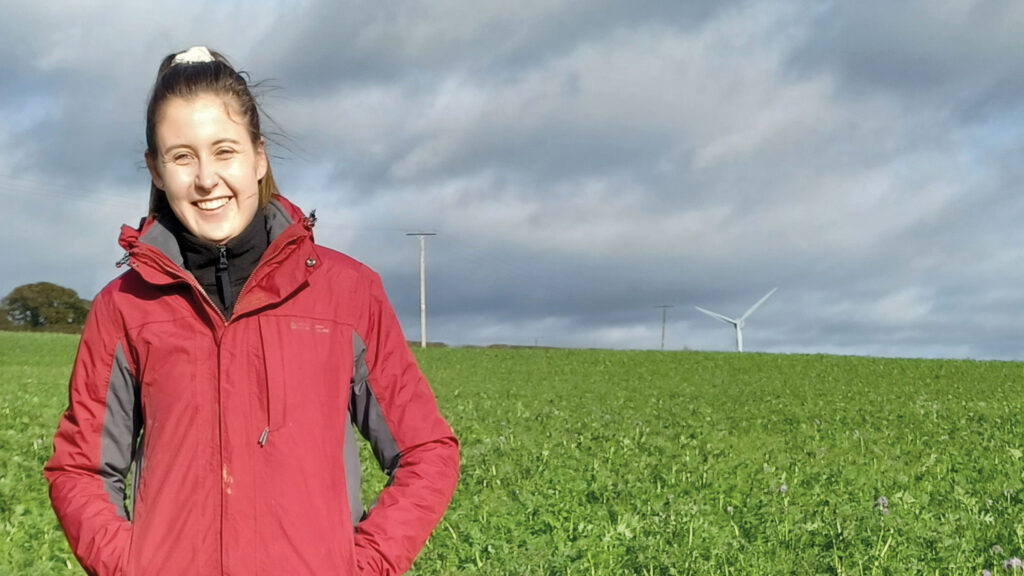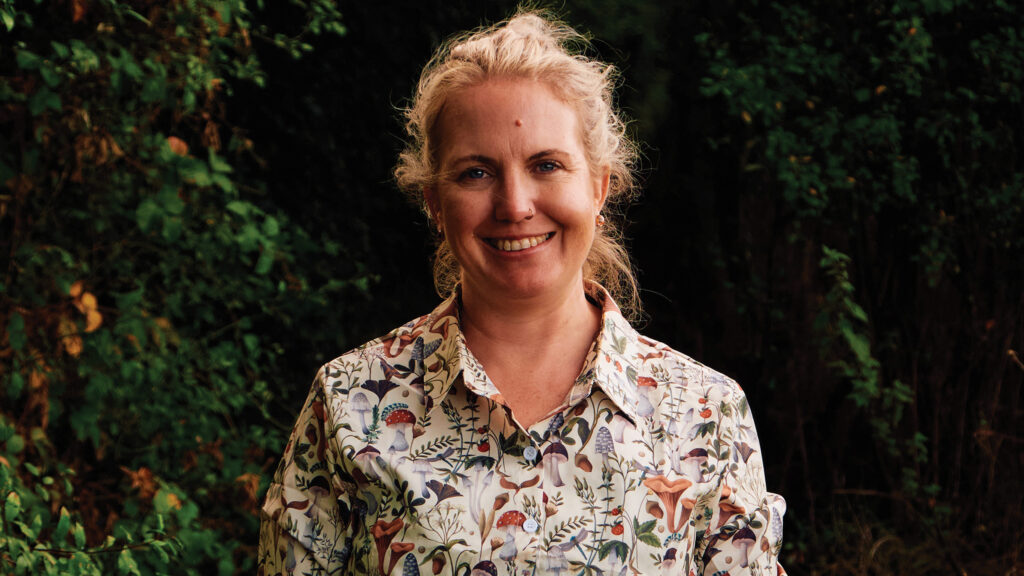How neurodiverse workers can protect mental health
 © AdobeStock
© AdobeStock Neurodivergent individuals often bring valuable qualities that farming businesses rely on, such as attention to detail, creative problem-solving and resilience.
But because neurodivergent people process information differently, without the proper support those strengths can be overshadowed by stress or burnout, leading to mental health issues.
Of the 1,700 people surveyed as part of Farmers Weekly’s neurodiversity campaign, four in five neurodivergent respondents said their condition affects their mental health, and one in five said the impact is significant.
See also: Read our comprehensive guide to understanding neurodiversity and mental health in farming (PDF)
This may be more pronounced in farming which can be isolating, with long working hours and a lack of mental health provision in rural communities making it difficult for people to access support.
Here, four people in agriculture talk about how neurodivergence affects their mental health and how they protect their wellbeing.
Sophie Dillon

© Sophie Dillon
When two separate people asked Sophie Dillon if she had attention deficit hyperactivity disorder (ADHD), she initially took offence, but when a third person asked in the space of three months she decided to find out.
Sophie, who is a crop input specialist at Agrii, got a fast-track test with her work’s health plan and within six months she was diagnosed with ADHD and autism.
Everything fell into place – the fixation she developed for grasses and seeds, the school reports saying she should listen more and talk less, and also why she had struggled with her mental health since her teens.
Diagnosed with depression after times where she couldn’t get out of bed for weeks, she had been on and off antidepressants for 12 years.
“They thought I was depressed but it was burnout,” Sophie says. Burnout is common in neurodivergence.
“The self-awareness that a diagnosis brings is as good as medication,” she says. It helped her recognise and avoid her triggers – particularly saying yes to too many social engagements.
“It all comes from self-awareness and going inward. I have the answers now. The difference between my mental health before and after diagnosis has been tremendous. It is the best it has ever been.”
She has weekly calls with a coach and other women with late diagnoses where they share their weekly challenges – from being unable to tackle laundry to experiences of rejection-sensitive dysphoria, which is linked to ADHD.
Agrii has been “bloody brilliant” she says. They have adapted their recruitment process to support neurodiversity and have a peer support café for neurodivergent employees.
They also implemented personalised adjustments and Sophie can take days off at short notice if she is overwhelmed.
Sophie’s advice for others is to implement boundaries to protect against burnout.
“Be kind to yourself. Value progress over perfection. If one day you need to be reactive rather than proactive, it’s OK – you can be awesome again tomorrow.”
Jamie Stokes

© Jamie Stokes
Jamie Stokes was diagnosed with ADHD at university and is in the process of gaining an autism diagnosis, as these traits have become more apparent to him while travelling to research his recently published Nuffield study.
He found the social side of university very difficult. He says: “I was a teenager who didn’t fit in inwardly, but was trying to fit in outwardly.”
He spent his time decoding social situations and mimicking how others behaved.
As his ADHD masked his autism and his autism masked his ADHD, he says: “It was like putting on a suit of armour to deflect everything.
“Outside me was trying to act normal, but inside I was working at 1,000mph trying to work out how to act. It was a difficult place to be.”
This left him feeling low and burnt out.
The Nuffield experience has made Jamie more vocal about his neurodivergence as he has been working in very different environments than his family farm.
He is more aware of what will lead to burnout – a full day of seminars, for example, or crowded spaces where the layers of sensory stimuli can cause anxiety and overload and the only option is to remove himself.
The awareness has been liberating. “Managing my triggers has taken such a strain off my mental health.”
But the pressure of functioning in a neurotypical world still takes its toll. “My coping mechanisms protect me in the outside world, but some days I will get home and be broken.
“But now I understand myself better and I have people around me – especially my wife Rosanna – who understand that there may be days when I can’t talk to them or go out, but it doesn’t mean I don’t want to.”
Ten or so years ago, when X was Twitter and it wasn’t so polarising, Jamie could see when people were saying things that he felt himself and he would try to encourage them to speak about it.
He is still a firm believer in this. “When your mental health is at its worst you can feel very isolated,” he says.
“Half the battle is that first conversation. Once it is out and off your chest, the world becomes a lighter place. There is so much support, but people need to take that first step. It’s OK to talk about it.”
Karen Fisher

Karen Fisher © Eliot Ely
Farming adviser Karen Fisher was diagnosed with ADHD after recognising her traits when watching TikTok videos about neurodiversity in women.
Five years on and she is an expert on the subject, saying “neurodiversity has become my hyperfocus”.
Some aspects of ADHD are positive, but others, such as time blindness and procrastination, can make life feel “chaotic and overwhelming”, she says, and this causes anxiety.
“I always feel like I am chasing my tail. People with ADHD often have lots of ideas, but applying them is a struggle.”
She also found an explanation for the feelings of worthlessness she experienced when she discovered the link between ADHD and premenstrual dysphoric disorder.
Because people with ADHD have a dysregulated nervous system, fluctuating hormone levels have a big impact on dopamine levels, which affect mood.
Karen describes it as “a dark cloud of self-doubt” that would blight the last two weeks of her cycle.
The ruminations and self-criticism that are a part of ADHD became louder and “I become my own worst enemy”.
In times of stress, raised cortisol levels can make it worse, and Karen even had suicidal thoughts when going though her divorce.
The ADHD diagnosis transformed her mental health. She has support in place and coaching helped her focus on self-compassion. ADHD medications also help.
Alongside her advisory job with the Soil Association, she works as a neurodiversity coach for rural communities.
“Once you get a diagnosis, you can put things in place to help manage it,” she says. She advocates small practical goals and would advise anyone who is struggling to reach out.
“Farming can be isolating and farmers can be hyper-independent. Finding someone to talk to is important.”
Alasdair Macnab

© Alasdair Macnab
Alasdair Macnab was 64 when he took an online test for dyscalculia. His score was conclusive.
He had been aware of his difficulty with numbers since school and now knows that dyscalculia is not just a number problem; for him it includes time-blindness, social anxiety and difficulty remembering people’s names.
Over his lifetime he developed coping mechanisms for situations involving numbers. As a veterinary surgeon, he armed himself with a book of drug dose rates for different animals.
A big issue was reading ear tag numbers. “I would read 123456 and write down 123546 and could not see the difference,” he says.
Alasdair is now a farmer and Limousin cattle breeder, and his wife Gill helps him check the accounts and farm paperwork.
“I struggle with things like registering cattle and claiming expenses. I get behind as I avoid doing things because of the sheer stress. I then end up not sleeping as I worry about it,” he says.
It is difficult to get a formal diagnosis of dyscalculia, but it is beginning to be better recognised.
Alasdair wants there to be a greater awareness of it to erode the related stigma that can cause shame and embarrassment and affect confidence.
There are many strengths associated with dyscalculia, including problem-solving.
A former vice-president of NFU Scotland, Alasdair is a big-picture thinker who has designed houses and has a gift for seeing plans in 3D.
Although he has experienced depression, Alasdair is keen to state that dyscalculia is not itself a mental health condition, but it does cause stress.
He says there needs to be a greater acceptance of different ways of thinking, and a focus on the positives of neurodiversity.
“We need to be more understanding as a society. Neurodivergent people struggle in some areas and excel in others.
“Folk need to realise that some people have problems and we need to accommodate them rather than penalising them.”
Level the Field
Our campaign, Level the Field, aims to make agriculture fairer, more equitable and more inviting for everyone.
By engaging people and organisations across our industry, Level the Field will champion inclusivity for the benefit of farm businesses and all who work in them.
The campaign kicked off in 2024, focusing on women in farming, and is now in its second year, focusing on neurodiversity.
See more on our Level the Field campaign hub.
